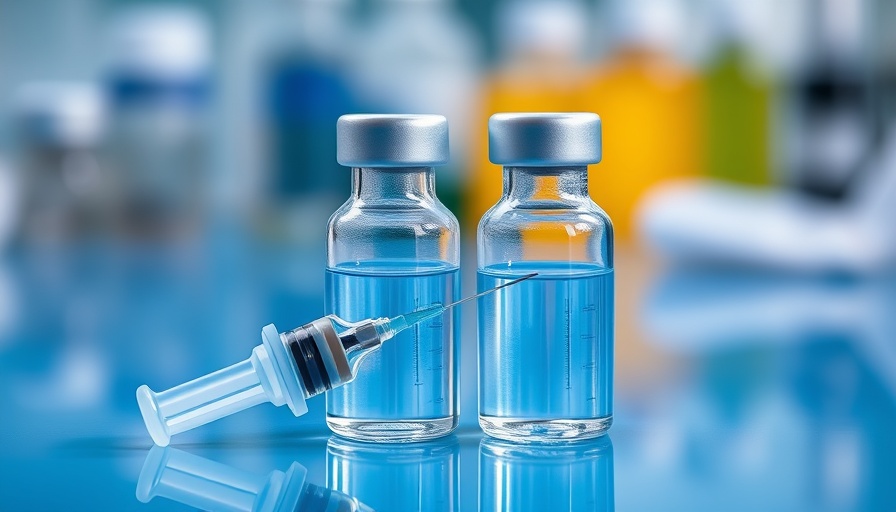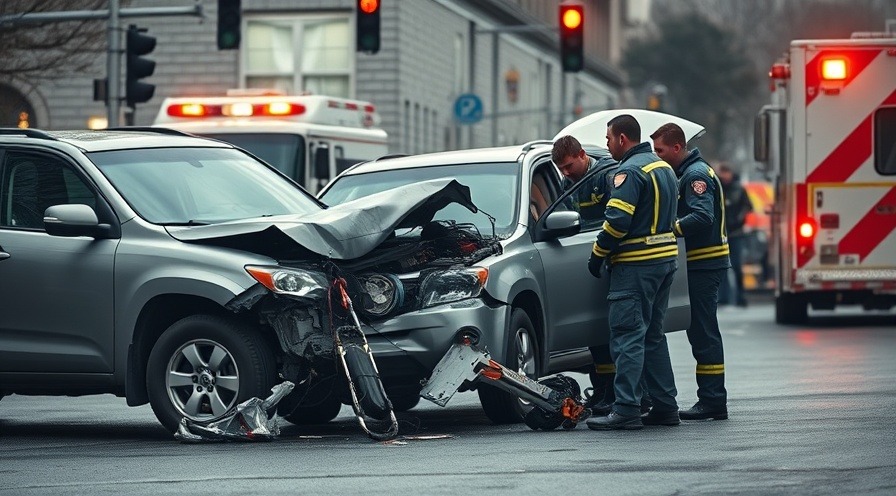
Urgent FDA Warning: Beware of Counterfeit Ozempic
In an alarming public health alert, the U.S. Food and Drug Administration (FDA) has recently issued a warning regarding counterfeit Ozempic, a popular injection used for type 2 diabetes management and weight loss. This measure comes amid a significant increase in demand for GLP-1 medications, raising concerns about the safety of patients relying on these treatments. As fake products infiltrate the market, consumers must be vigilant.
Understanding the Crisis: What You Need to Know
On April 9, 2025, the FDA seized several counterfeit Ozempic pens after they were discovered outside the authorized supply chain. Manufacturers Novo Nordisk confirmed the presence of fake products labeled with specific batch numbers, highlighting the need for consumers and healthcare providers to carefully inspect their medications. Products labeled with lot number NAR0074 and serial number 430834149057 have been specifically identified as counterfeit.
This increasing issue is not isolated; the FDA is actively investigating more suspicious labels, particularly focusing on packages marked with lot number PAR0362 and serial numbers beginning with 51746517. As of now, there have been six adverse events reported, although these incidents are not confirmed to be directly caused by the counterfeit products.
Why Should You Care?
For health-conscious individuals and those managing diabetes, it’s crucial to understand how the presence of counterfeit medications can impact personal health. Relying on compromised treatments can lead not only to ineffective management of diabetes but also to potentially harmful side effects associated with unknown ingredients in fake drugs.
Consumer vigilance is essential; ask your pharmacist to verify that your Ozempic is genuine. Box labeling details should match the expected quality, and consumers are urged to avoid purchasing medications from unverified online sources.
Building Trust in the Drug Supply Chain
The recent counterfeit scare underscores the ongoing struggle against fake medications worldwide. Lawmakers and regulators are working closely with stakeholders to ensure that the drug supply chain is as secure as possible, advocating for additional safeguards that could prevent these worrying breaches in the future.
Counteracting these threats involves not just governmental regulations but also public awareness and education. Healthcare practitioners are encouraged to report any suspicious medications through the FDA’s MedWatch program, facilitating a more proactive approach toward counterfeit detection.
Your Role: Protection and Reporting
Consumers should take action if they suspect counterfeit medications are in circulation. Reports can be submitted directly to the FDA, and medical professionals should remain educated and prepared to act upon receiving counterfeit alerts. Resources like the FDA’s consumer complaint coordinator can provide additional support in these matters.
Engaging with local health authorities empowers the community to stand against unsafe medications. Spreading awareness among peers can also contribute significantly towards protecting other individuals’ health and well-being in this ongoing battle against counterfeit drugs.
Conclusion: Protect Your Health
As the counterfeit drug epidemic continues to evolve, staying informed is your best defense. Regularly check your medications for authenticity, voice your concerns with healthcare providers, and stay proactive about medication safety. Together, we can combat the risks posed by counterfeit drugs, ensuring better health outcomes for everyone.
If you suspect any fraudulent medicines or adverse drug reactions, don't hesitate to report them. Your vigilance could help save someone else's life.
 Add Row
Add Row  Add
Add 




 Add Row
Add Row  Add
Add 

Write A Comment